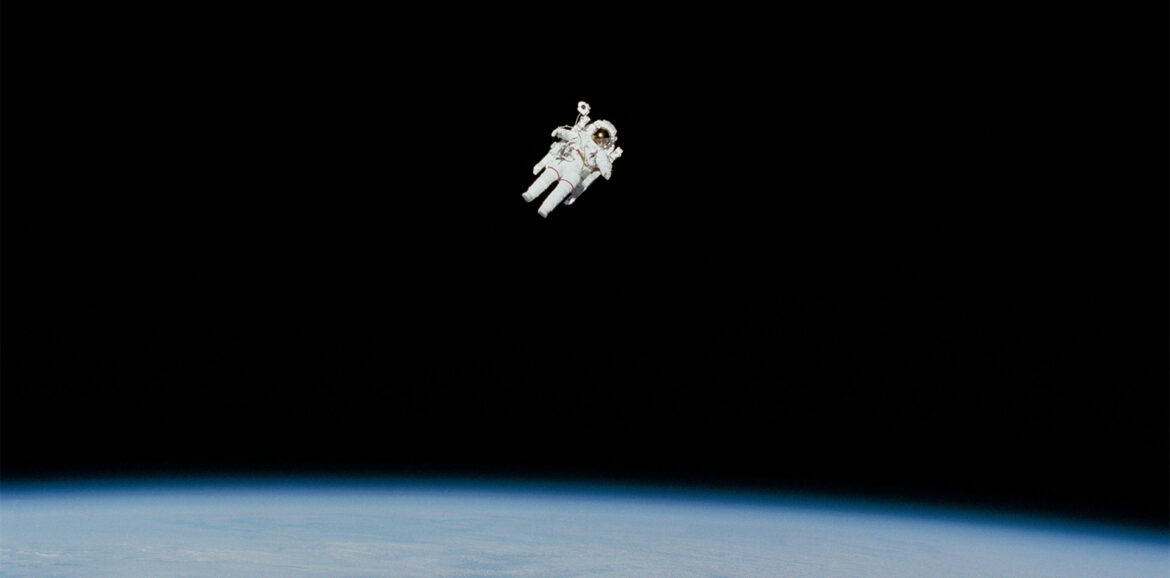Sound is so natural to us on earth that we often don’t even think about it. You hear the birds in the morning, traffic on the street, music from your headphones and maybe even the gentle hum of your refrigerator. But what happens when we leave our familiar planet? Can you actually hear anything in space? Does sound exist outside the Earth, or is it one big deafening … silent there?
In this blog, we dive into the fascinating world of sound, space travel and science. We explain what sound actually is, how it propagates, why it works differently in space, and how astronauts can still talk to each other. And we ponder whether there might be ways to perceive “sound” in the cosmos after all.
What is sound anyway?
Before we take the leap into space, we must first understand what sound on Earth means. Sound is created by vibrations. When something vibrates – for example, a guitar string, a speaker or your vocal cords – it sets the air molecules around it in motion. Those molecules then collide with other molecules, creating a wave of air pressure differences. Our ear captures those vibrations, and our brain translates that into sound.
In short: sound needs a medium to travel. That medium can be air, but it can also be water, steel or even your own bones.
Space: a vacuum without a medium
And that is where the shoe immediately wrings. Space is essentially a vacuum: there are no or hardly any particles that can transmit vibrations. Without a medium, a sound wave cannot propagate itself. This means that, strictly speaking, no sound can be heard in space as we know it.
When a spaceship explodes in the deep cosmos, it looks spectacular – but unlike the movies of Hollywood, you don’t hear a dramatic “BOOM” there. For an astronaut watching, it remains silent.
But how do astronauts communicate?
You may be wondering: if sound cannot propagate in space, how can astronauts understand each other? This is done through radio communications. Astronauts wear helmets with microphones that record their voices. Those signals are converted into radio waves, an electromagnetic form of energy that can travel through space. On the other hand, the radio converts the signals back into sound.
Inside a spaceship or space station, by the way, sound can be heard because there is air there. Astronauts therefore hear the hum of ventilation systems, the clicking of switches and the talking of colleagues. Only outside, in the real emptiness of space, does the sound cease.
Sound in science fiction: often unrealistic
Anyone who has ever seen a science fiction movie knows that spectacular sound effects are often added to space battles or explosions. Think of the roar of engines or the screeching sound of lasers. It looks exciting, but it’s not scientifically accurate. In reality, those scenes would be completely silent.
Yet filmmakers do this deliberately: silence feels unnatural to viewers and would reduce tension. One exception is the film 2001: A Space Odyssey, in which director Stanley Kubrick did depict the silence of space realistically.
So does no sound exist outside the earth at all?
This is an interesting question. Strictly speaking, there is no audible sound in the vacuum. But in the universe, there are vibrations and waves that do propagate in a different way:
1. Sound in gas clouds and planets
Although deep space is a vacuum, there are places where particles are present. Think of gas clouds, atmospheres of planets or the sun. There, sound can propagate – although it sounds very different from that on Earth. For example,
2. Space waves converted to sound
Astronomers can convert electromagnetic radiation, radio waves or even gravitational waves into audible tones. This is often done to better understand phenomena such as black holes or pulsars. For example, NASA has made the “sounds” of space audible by translating data into audio. The result is often a kind of droning, alien sound more akin to science fiction than a piano.
3. Vibrations in structures
If you are in a spaceship or spacesuit and hit something, sound can propagate through the solid materials. So an astronaut tapping his own helmet can hear it – not through space, but through the vibrations caused by the suit itself.
How would the space “sound”?
Suppose we could still magically tune our ears to the vibrations and waves that exist in the universe. Then we would probably hear a cacophony of low hums, pulsating rhythms and high-pitched beeps. Pulsars, for example, emit signals in an extremely precise rhythm, almost as if someone were wielding a cosmic metronome. Black holes produce low frequencies far below our hearing range, but which – when scaled up – sound like deep thuds.
The idea that the cosmos is full of “inaudible music” has inspired many scientists and artists.
Why is silence in space so important?
For astronauts, the silence of space is not only fascinating but also a safety factor. Because they cannot hear anything outside the spacecraft, they are completely dependent on communication through their headsets. The loss of radio contact can therefore be life-threatening.
In addition, silence can be psychologically draining. On Earth, we are constantly surrounded by sound, and silence is often seen as soothing. But in space, the feeling of total soundlessness can also evoke a sense of isolation. This is why sounds are deliberately added inside space stations: ventilation systems and background noise make astronauts feel less lonely.
The symbolism of silence in space
The absence of sound in space also has a philosophical side. It reminds us that our way of perceiving is only one of many. Sound, as we know it, is a phenomenon that can only exist in a small, thin shell surrounding our planet. Outside that shell, completely different rules apply.
It makes it clear how special it is that we can experience sound here on earth: from music to conversations, from the sea to the wind. In space, none of that is there. Perhaps that is the greatest lesson: precisely because silence is the norm there, we learn to appreciate sound on earth more.
Silence as the true “sound” of the cosmos
So, does sound exist outside the earth? The honest answer: not as we know it. The void of space lacks a medium to carry sound waves, leaving everything silent. Nevertheless, there are enough vibrations and waves that – with some creativity and technology – we can convert them into audible signals. In this way, we can still listen to the cosmos, albeit indirectly.
So astronauts will never hear an explosion outside their spaceship, but inside their helmet or station there will fortunately remain plenty to hear. And for us on Earth, it may be comforting to know that our daily lives reverberate with sound – something utterly impossible in most of the universe.








